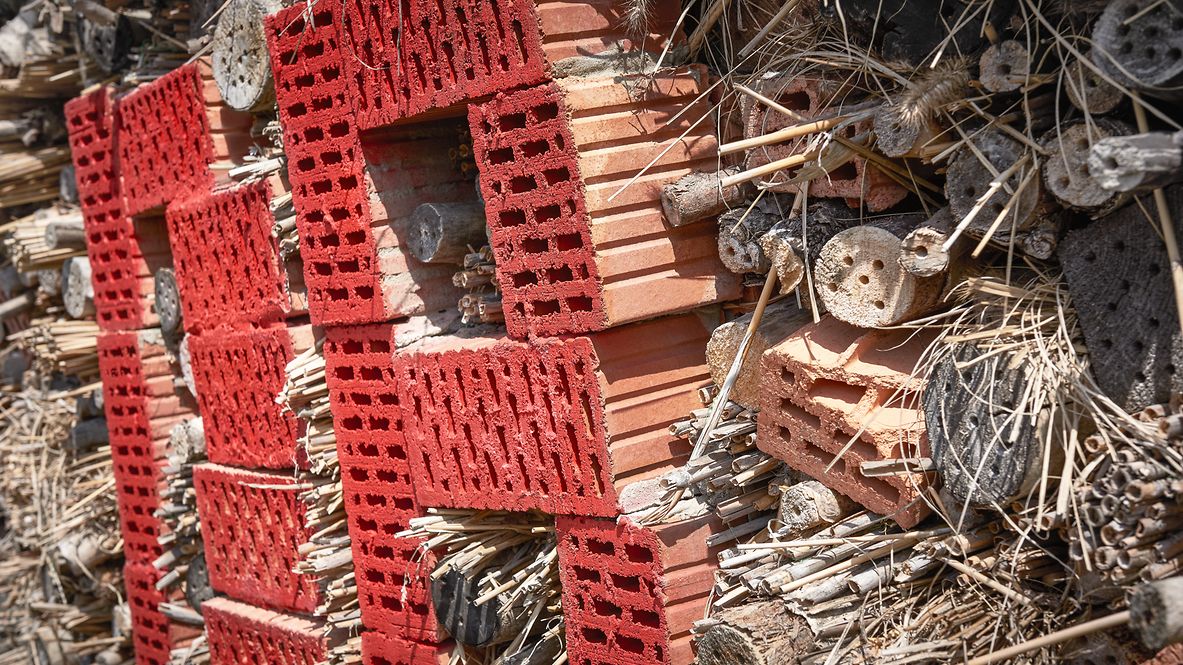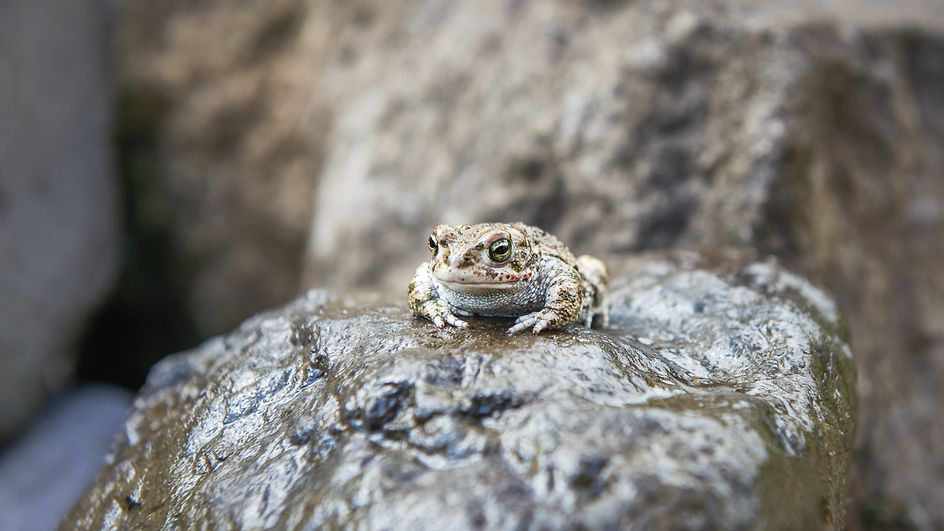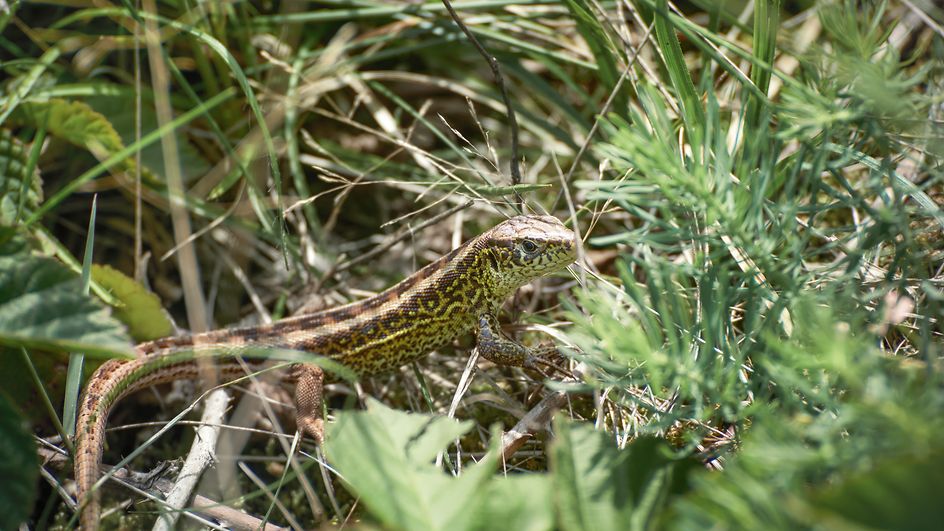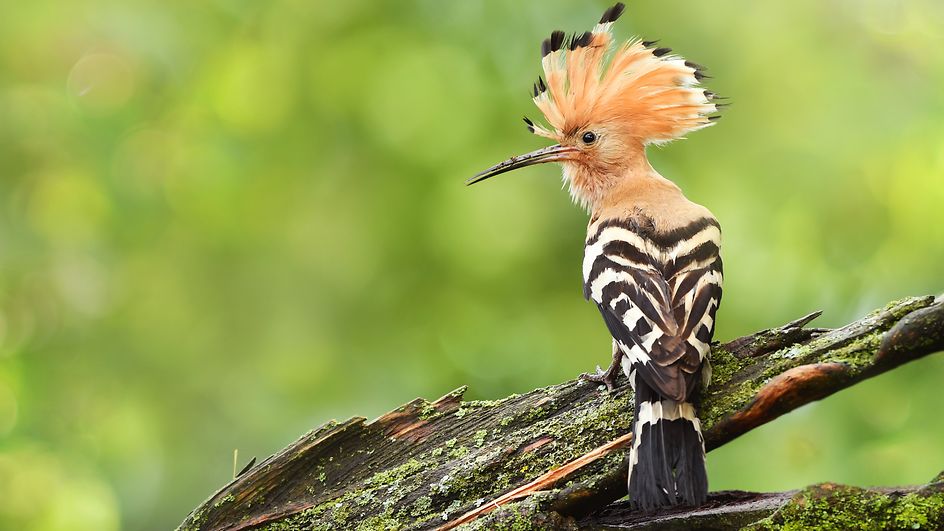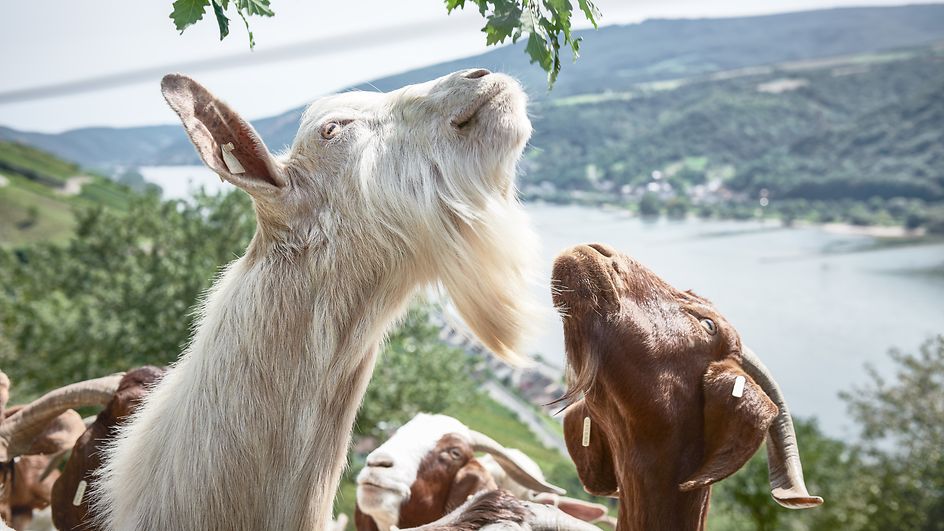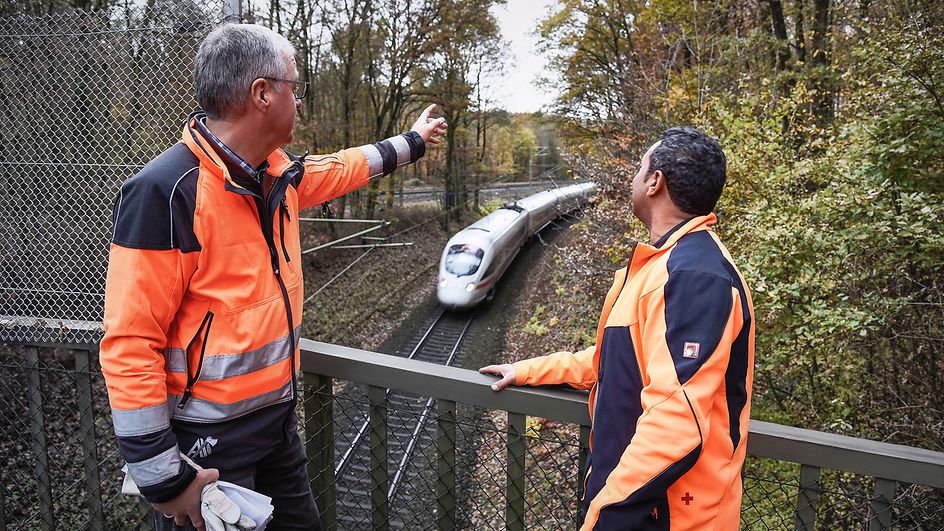Deutsche Bahn is committed to nature and species conservation in many different ways. At several locations, DB has created specially designed “hotels” for bumblebees, wild bees, and other insects.
Whether at station forecourts, next to plants or logistics halls – the artificially created nesting and overwintering aids are made from natural materials such as wooden blocks, wood wool, straw, reeds, bamboo sticks, brushwood, peat and clay, thus providing valuable shelter for insects.
Insect hotels at stations
At Hamburg-Harburg station, for example, DB has redesigned the areas around the platforms and installed an insect hotel. Mason bees, ladybirds, and other winged guests can nest there and hibernate in safety. At the “future station” in Renningen, Baden-Württemberg, several NABU-certified insect hotels have been set up in the butterfly meadow created on site. More are planned.
Insect hotels on depot grounds
At the ICE maintenance depots in Rummelsburg (Berlin) and Leipzig, two insect hotels have been installed at each location. Together with its partner gartenetage, Deutsche Bahn has created a new habitat for bumblebees, bees, butterflies and more. In Rummelsburg, the rustic insect hotels with slate roofs stand right next to a 2,800-square-meter rainwater infiltration area, where a wildflower meadow has been sown.
Since mid-May 2025, the grounds of the DB Regio depot in Düsseldorf have also offered a habitat for insects: DB apprentices built an insect hotel there and created a wildflower meadow of around 200 square meters. Endangered species such as wild bees and butterflies will now find new nesting sites.
Insect hotels along the railway line
In 2024, a total of 100 insect hotels were set up along the entire railroad line of the Südostbayernbahn (SOB). This helps protect wild bees – a species crucial for the pollination and reproduction of many plants.

